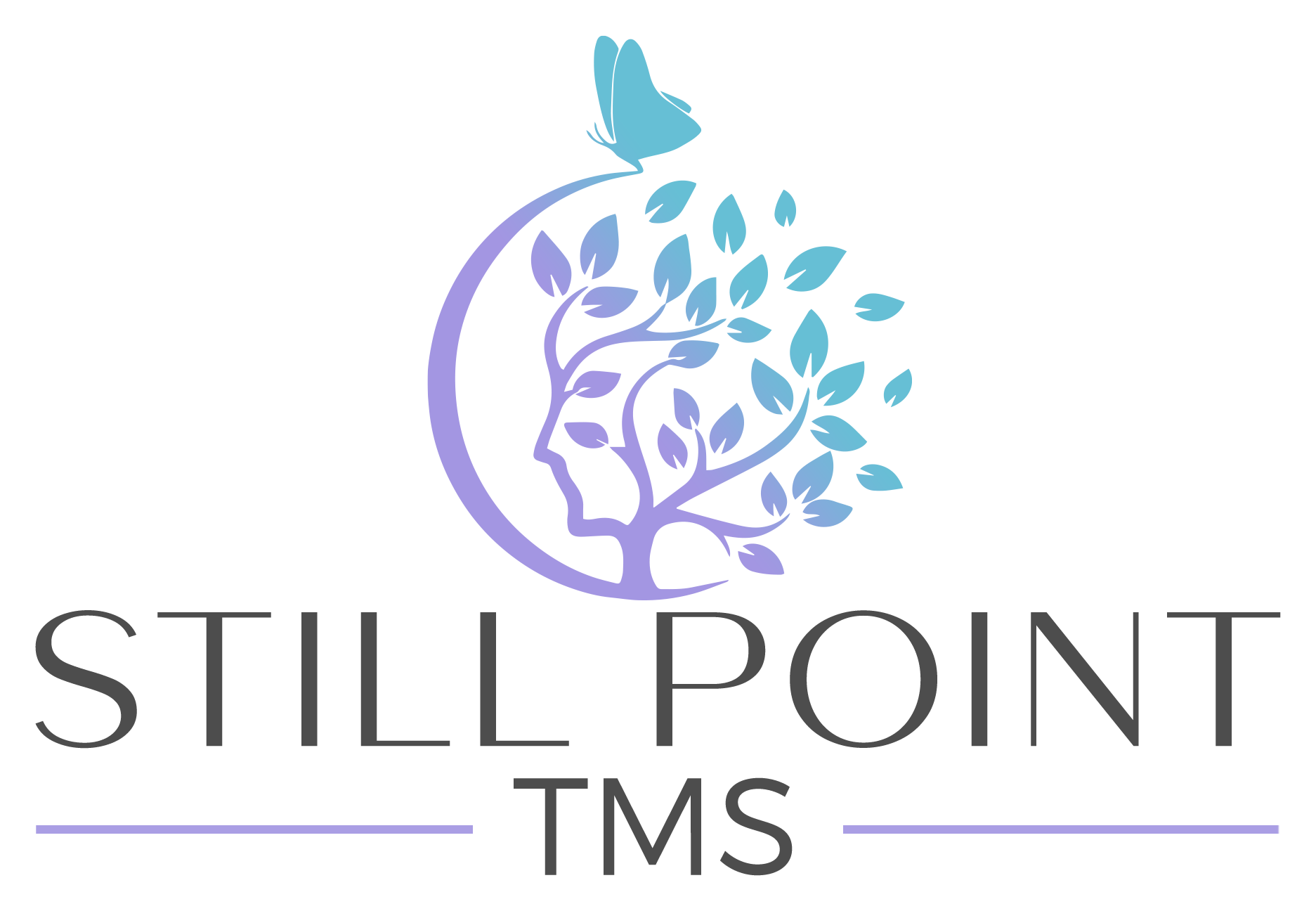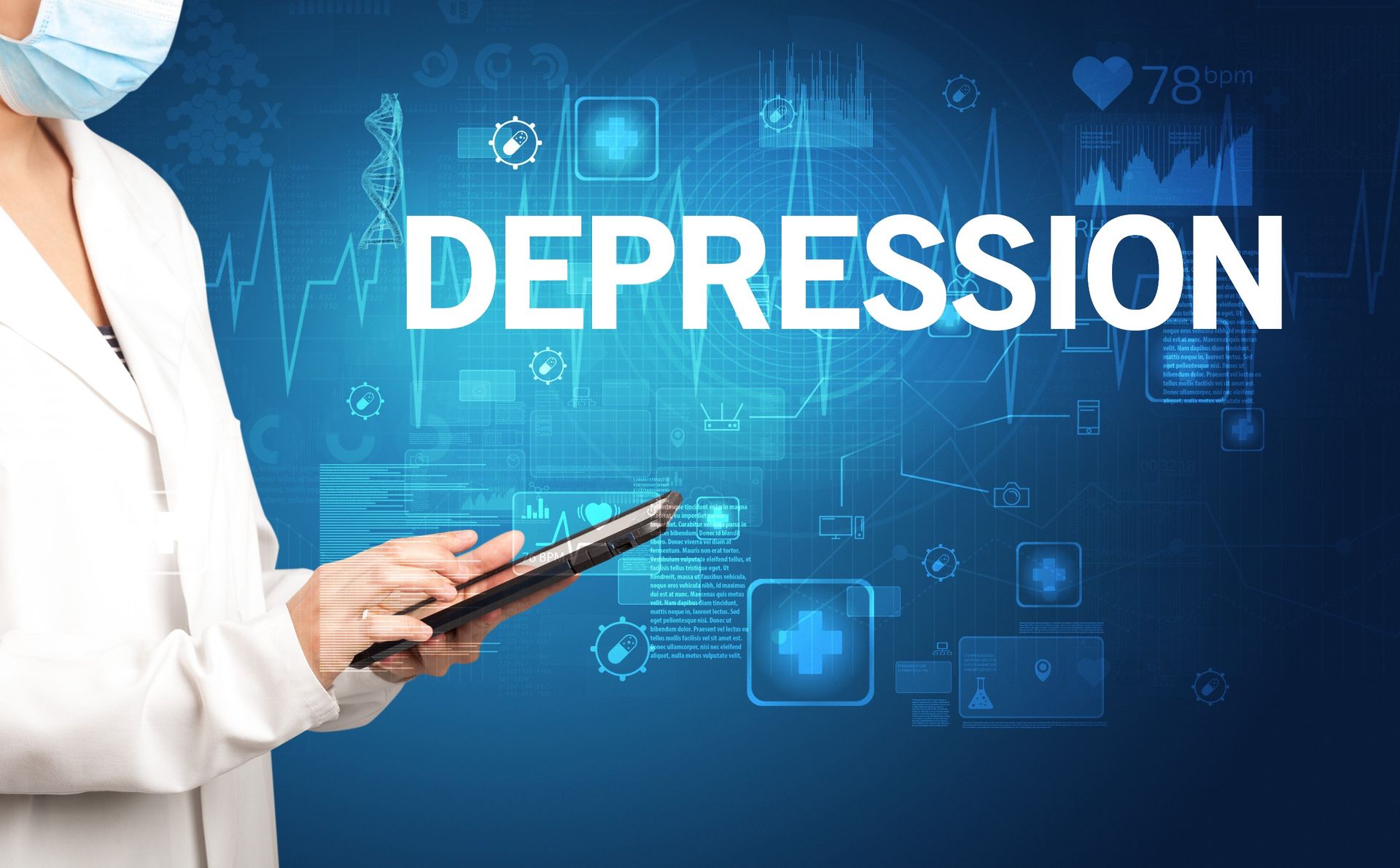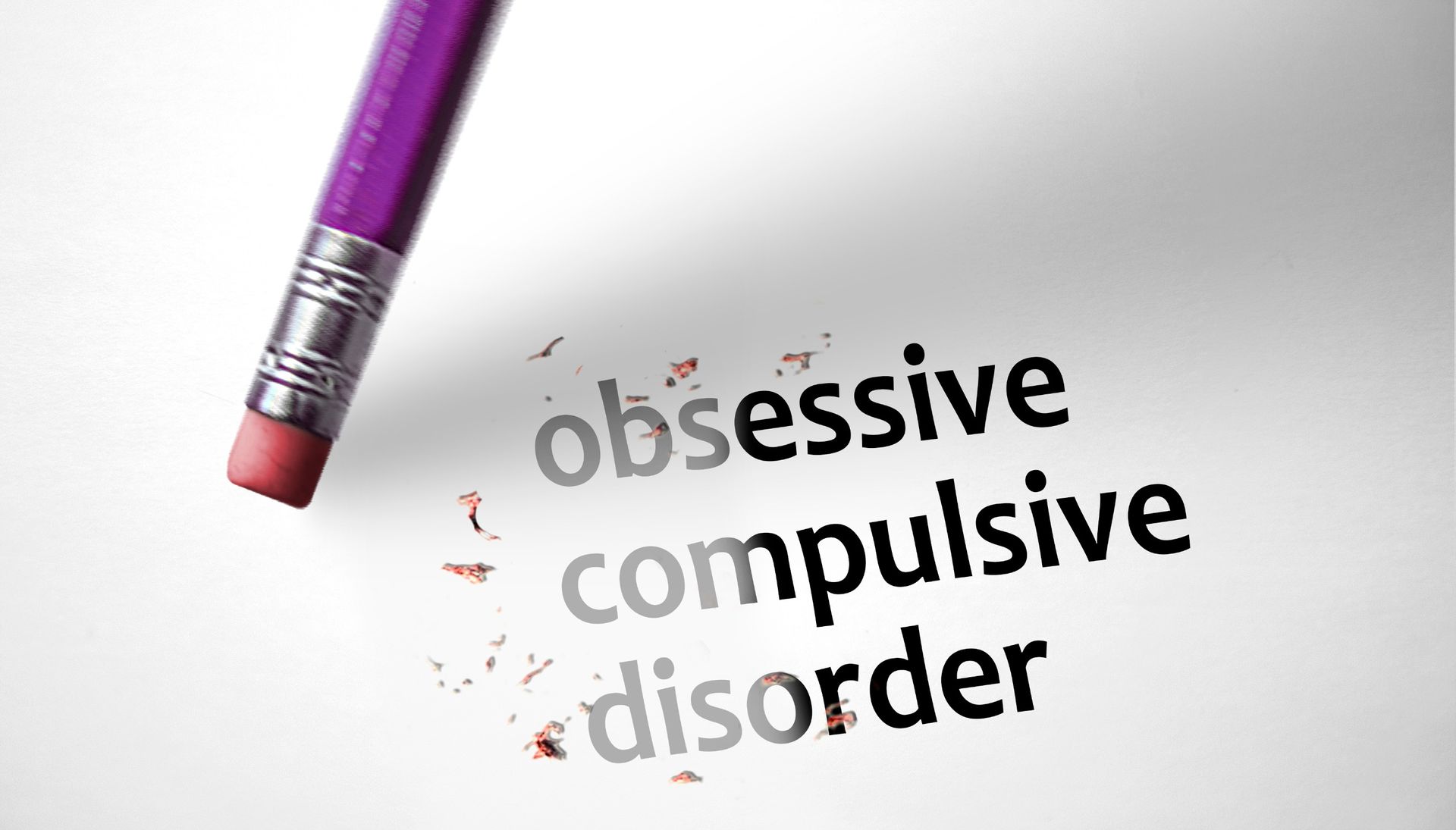103 Pennsylvania S, Charleston, WV 25302
103 Pennsylvania S, Charleston, WV 25302
Understanding the Importance of Psychiatric Evaluation
Michelle Bez • Jan 27, 2024
Mental health has become an increasingly talked-about topic in recent years, and for good reason. Did you know that the rates of mental illnesses such as depression, anxiety, and PTSD have been on the rise? According to WHO, there
has been a 13% rise in mental health disorders over the past 10 years.
It is crucial that we not only acknowledge their existence but also understand them better. One important aspect of addressing mental health concerns is through psychiatric evaluation – a thorough assessment conducted by a trained
professional to diagnose and treat any underlying psychological conditions.
In this blog post, we will delve deeper into why psychiatric evaluation is essential in promoting overall well-being and how it can improve the treatment process for individuals struggling with mental health issues.
So whether you are someone seeking help or simply looking to expand your knowledge on this topic, read on to discover the importance of psychiatric evaluation from a professional perspective.
Defining Psychiatric Evaluation and its Purpose
A Psychiatric Evaluation is a comprehensive process designed to diagnose and devise a suitable treatment plan for individuals experiencing mental health challenges. Implemented by a qualified mental health professional, typically a
psychiatrist, this evaluation involves a meticulous analysis of an individual's mental, emotional, and behavioral state.
The primary purpose of a psychiatric evaluation is to identify any mental health disorders that may be affecting an individual's quality of life. This procedure helps in understanding the root of the distress—whether it's due to biological, psychological, or environmental factors.
By meticulously assessing one's thoughts, feelings, behavior, and functioning, mental health professionals can diagnose conditions ranging from anxiety, depression, and PTSD, to more severe disorders such as schizophrenia.
Consequently, this leads to a well-informed, personalized treatment plan that aims to empower the individual to cope with their struggles and improve their overall well-being.
The Process of a Psychiatric Evaluation: What to Expect & How It Works
A psychiatric evaluation typically begins with a thorough discussion where the clinician will ask about your concerns, symptoms, and relevant background information, such as medical history, family history of mental illnesses, and
personal lifestyle choices. This conversation serves as an opportunity for the professional to gain insights into your emotional state and daily functioning.
Next, there may be a series of standardized psychological tests. These tests, which can be written or verbal, analyze your condition from multiple angles, often measuring aspects like mood, cognition, and personality traits. They are crucial for the psychiatrist to understand your situation better and make an accurate diagnosis.
A physical examination may also be conducted to rule out any physical conditions that might be contributing to your symptoms. It could involve blood tests, MRI scans, or other diagnostic procedures.
The final part of the psychiatric evaluation is the diagnostic assessment. Based on your conversation, test results, and physical examination, the psychiatrist will determine if you have a psychiatric disorder.
They will explain the diagnosis to you, discuss possible treatment options, and answer any questions you might have. Remember, the ultimate goal of a psychiatric evaluation is to assist you in understanding your condition and
charting the best path forward towards improved mental health.
The Role of a Psychiatrist in the Evaluation Process
A psychiatrist plays an instrumental role in the psychiatric evaluation process, serving as a lifeline for patients navigating the turbulent waters of mental health disorders. They are medical doctors specializing in mental health, including substance use disorders. They are qualified to assess both the mental and physical aspects of psychological problems.
During a psychiatric evaluation, the psychiatrist undertakes a multi-faceted role. Initially, they act as an empathetic listener, providing a safe and non-judgmental space for the patient to share their thoughts, feelings, and experiences. This step is crucial in establishing trust and understanding the individual's unique situation.
Subsequently, they function as a diagnostician, using their expertise and the information gleaned from discussions and tests to accurately identify any underlying mental health disorder. This diagnosis forms the foundation for the
upcoming treatment plan.
Finally, they take on the role of a guide, explaining the diagnosis to the patient, discussing potential treatment options, and addressing any concerns or queries. Their expertise and recommendations are vital to help the individual make informed decisions about their treatment pathway.
In essence, a psychiatrist's role in the evaluation process is pivotal in setting the course for an individual's journey toward improved mental health.
Why a Psychiatric Evaluation is Necessary Before Starting Treatment or Therapy
Embarking on a mental health treatment or therapy plan without undergoing a comprehensive psychiatric evaluation can be likened to starting on a journey without a road map. The evaluation acts as a crucial first step, providing vital
insights about the individual's mental state that help in formulating an effective treatment plan.
Firstly, a psychiatric evaluation can accurately diagnose the nature and severity of a mental disorder. Mental health disorders have overlapping symptoms, which can make it challenging to pinpoint the exact condition without a thorough analysis. By methodically evaluating an individual's thoughts, emotions, and behaviors, a psychiatrist can diagnose the condition accurately, be it depression, anxiety, PTSD, or any other mental health disorder.
Secondly, the evaluation can reveal the root causes or contributing factors of the disorder, such as genetic predisposition, environmental factors, or personal experiences. This understanding is instrumental in deciding the appropriate treatment approach. For example, cognitive-behavioral therapy might be recommended for individuals struggling with anxiety due to negative thought patterns, while medication could be more suitable for those with a biological basis for their depression.
Lastly, the evaluation helps in developing a personalized treatment plan, tailored to the individual's unique needs and circumstances. Understanding the person's lifestyle, personal preferences, and coping mechanisms can help in creating a more effective and sustainable treatment plan. This personalized approach increases the odds of treatment success, leading to improved mental health outcomes.
Thus, a psychiatric evaluation is not merely a formality but an essential prelude to any mental health treatment or therapy, providing a clear direction and roadmap for the individual's journey toward mental well-being.
Different Types of Psychiatric Evaluations for Various Mental Health Concerns
Psychiatric evaluations are not one-size-fits-all procedures. Given the vast spectrum of mental health disorders, different types of evaluations are used to diagnose and devise treatment plans for various conditions.
1. Depression Evaluation: This evaluation involves screening for symptoms such as persistent sadness, loss of interest in activities, changes in sleep or appetite, and feelings of guilt or low self-worth.
Tools like the Beck Depression Inventory or the Hamilton Depression Rating Scale may be used. If you or your loved ones feel they are going through depression consider taking our PHQ-9 screening for an initial assessment.
2. Anxiety Disorders Evaluation: This looks for signs of excessive worry, restlessness, and physical symptoms like rapid heartbeat or excessive sweating. Self-report questionnaires such as the GAD-7 (Generalized Anxiety Disorder 7)
are often used.
3. Post-Traumatic Stress Disorder (PTSD) Evaluation: This focuses on identifying trauma-related symptoms such as flashbacks, nightmares, and avoidance of trauma triggers. Clinicians might use the PCL-5 (PTSD Checklist for
DSM-5) for this evaluation.
4. Bipolar Disorder Evaluation: This includes looking for symptoms of mania such as elevated mood, increased activity, reduced need for sleep, and grandiosity. Mood Disorder Questionnaire (MDQ) is one of the tools commonly
utilized.
5. Schizophrenia Evaluation: This involves assessing for symptoms like hallucinations, delusions, disorganized speech or behavior, and apathy. The PANSS (Positive and Negative Syndrome Scale) can be used in this type of
evaluation.
Each of these evaluations is meticulously designed to accurately diagnose specific mental health disorders, leveraging different methodologies, and questionnaires.
By tailoring the evaluation to the suspected disorder, clinicians can ensure a more precise diagnosis and treatment plan, ultimately enhancing the mental health outcomes for the individual.
The Benefits of a Thorough Psychiatric Evaluation for Overall Mental Health
A comprehensive psychiatric evaluation brings numerous benefits to an individual's overall mental health journey.
1. Accurate Diagnosis: The key benefit of such a thorough evaluation is the ability to make an accurate diagnosis. It is crucial because mental health disorders often have overlapping symptoms, making it challenging to accurately
identify without a comprehensive assessment. The evaluation ensures the right condition is identified, which leads to the most effective treatment.
2. Personalized Treatment Plan: A thorough psychiatric evaluation allows for a highly personalized treatment plan. By understanding the unique circumstances of the individual, including lifestyle, personal preferences, and coping
mechanisms, mental health professionals can tailor the treatment approach to fit the individual's needs, leading to a more successful outcome.
3. Identifies Underlying Issues: A comprehensive evaluation can identify any underlying issues that may be contributing to mental health problems. This can include physical health problems, past traumas, or environmental factors. Addressing these issues along with mental health disorders can result in more effective treatment and better overall mental health.
4. Creates a Platform for Open Discussion: The evaluation process provides an opportunity for individuals to discuss their mental health challenges openly and honestly. It can be therapeutic in itself and fosters a better understanding
between the individual and the mental health professional, facilitating a more fruitful therapeutic relationship.
5. Prevents Misdiagnosis and Unnecessary Treatment: A thorough psychiatric evaluation reduces the risk of misdiagnosis, which can lead to unnecessary or incorrect treatment. By accurately diagnosing the condition from
the onset, individuals are saved from the potential harm and setback of wrong treatment methods.
6. Enables Early Intervention: Through a thorough psychiatric evaluation, mental health disorders can be detected early, allowing for early intervention. This can significantly improve prognosis, prevent the condition from worsening,
and enhance the individual's quality of life.
In conclusion, a comprehensive psychiatric evaluation is much more than just a formality—it's a critical step in the mental health journey, setting the stage for a more targeted and effective treatment plan, and ultimately, better mental health outcomes.
Conclusion
Are you struggling with depression, OCD, or other mental health disorders such as depression and in Charleston West Virginia don’t know what to do? If yes, you have come to the right place! At Still Point TMS we are here to help. Our mental health professionals will help you every step of the way on your mental fitness journey by creating a treatment plan. We understand that it is a challenging situation but you have already taken the first step by being here.
Don’t wait any longer, request a
free consultation or psychiatric evaluation today! You can reach us at
304-915-0084 to learn more or schedule your appointment.

Schedule a Consultation
Local to Charleston West Virginia and need help with depression? Contact Still Point TMS today!
Call Now: 304-915-0084

TMS Therapy Can Help People With
- Depression
- Lack of Joy
- Sadness and Despair
- Low Mood
- Lethargy
- Insomnia
- Oversleeping
- Social Isolation
- Self-Harm
- Substance Abuse
- Suicidal Ideation
- Alcoholism


Ready to Get Started?
Holistic Anxiety Disorder Treatment & Mental Health Services in Charleston, WV
Our commitment is to enhance the mental health of our community and we pledge to support you in your journey by providing a customized treatment plan to help you overcome your struggles and achieve a fulfilling life. At Still Point TMS, our mental health clinic in Charleston West Virginia, we utilize TMS therapy, an exceptional and innovative method to combat treatment-resistant depression. We're dedicated to helping you find the mental well-being you deserve. It’s time.
Or Call: 304-756-5715 for Bez Psychiatric
🙌 Bez Psychiatric Is Now Part of Still Point TMS Therapy 🎉
Navigation
Contact
Or Call: 304-756-5715 for Bez Psychiatric
304-346-9927
MON – FRI: 9am-4pm
SAT – SUN: Closed
103 Pennsylvania S, Charleston, WV 25302







